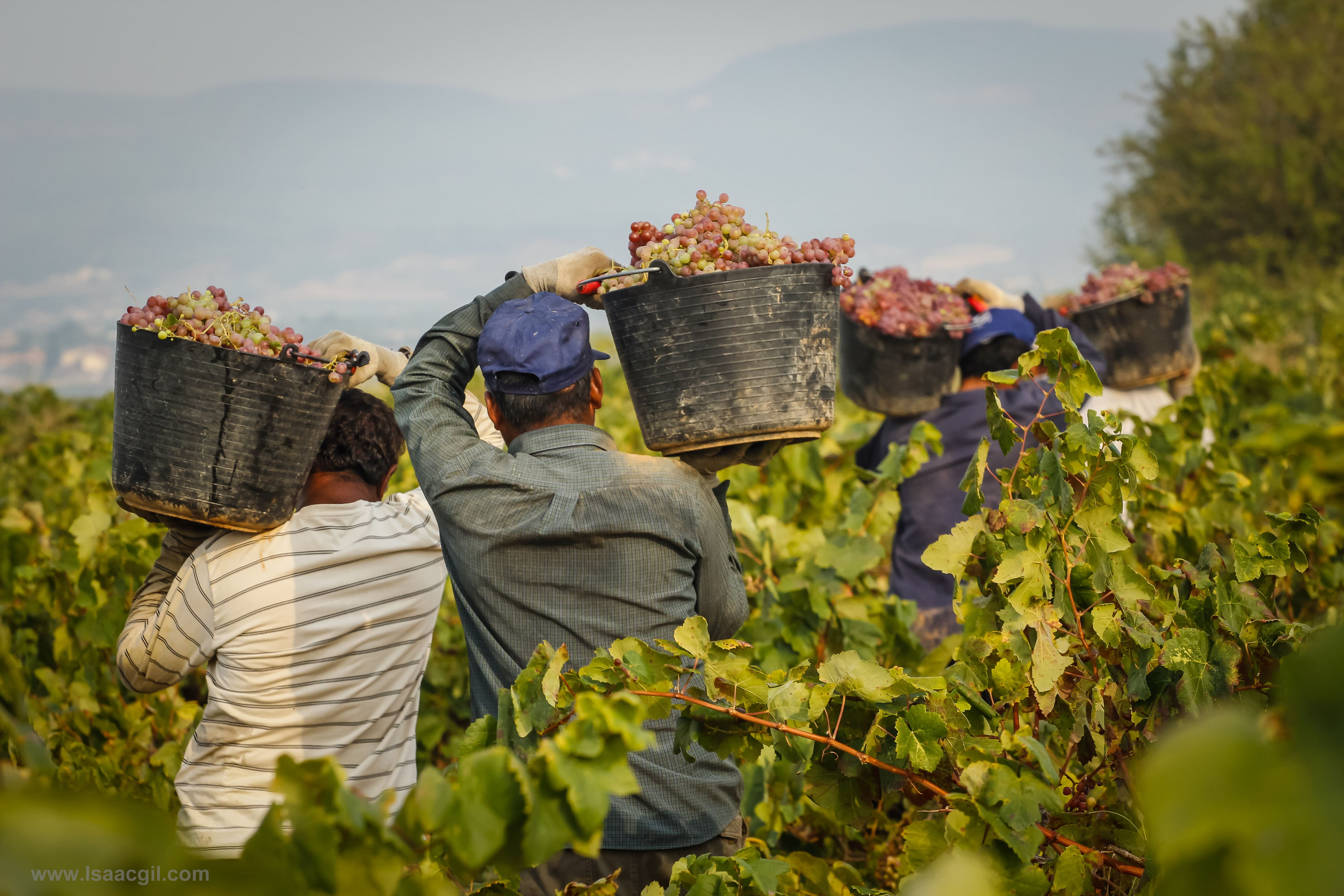Grapes in Mexico Looking Up, US and Egyptian Grapes Suffer from Logistical Issues
Grape - Mexico
Mexican Grapes In Season
Despite expecting lower production volumes than the previous season, Mexico still remains optimistic about its table grape harvest, for which promotable volumes will be sent from late May to early June. Growers are hopeful that reduced volumes will lead to more profits, as large quantities from last season did not necessarily equal higher returns.
Harvest Estimates for 2020
According to the Mexican Table Grapes Growers Association, the expected output is 19.7 million cases, which is 20% lower than last year’s 23.6 million cases. Growers claim that last year’s harvests were an anomaly, which commenced later than usual. This year’s season, by contrast, is early, with a smaller crop output due to frosts in the winter.

The frosts have impacted the early table grape varieties, including the Perlettes, down to 800,000 cases, compared to 1.7 million cases recorded last season. Early Green grape varieties began shipments to retailers from May 18 to June 8, Flame grapes from May 25 to June 22, mid-season Green grapes from June 8 to July 5, and Black grapes from May 25 to June 28.
Green grapes are expected to have the most successful harvests, increasing from approximately 2.6 million cases to 2.8 million cases. Red seedless grapes, although not as fruitful as the green ones, are expecting 8.6 million cases, down from 10.7 million previously due to frosts. New varieties, the ARRA 29 and Early Sweet Celebration are highly prized as they take up a large percentage of the Red seedless production volume. Mid-season volumes for Green grapes will shrink as well, from a little over 5 million cases to 4.1 million this season, owing to the lackluster Sugraone variety. Black seedless volumes are expected to decrease from 1.9 million to 1.5 million cases.
Export Trends in Recent Years
Mexico exports a significant amount of its table grapes to its neighboring country, the United States. Within the 2018/19 marketing year, 144,168 tons were exported to the US, claiming 98% of total exports. Mexican table grapes supply the US after the end of Chile’s campaign and right before the start of California’s harvests.
Export Outlook for 2020
The coronavirus outbreak has not affected Mexico’s imports into the US and shipments are underway as planned. Table grapes are mainly headed to retail stores, which have remained open throughout the pandemic unlike restaurants or schools. Other than the US market, Mexico has recently obtained export rights to South Korea, Australia, New Zealand, and China.
Grape - United States
US Grapes in Season
The United States’ table grape production is concentrated in Coachella Valley, California. Harvest season in 2020 has already begun in early May, earlier than the previous year, as the weather was cooler than normal. This season has been met with worries by growers with the drop in domestic demand from the coronavirus and competition from cheaper Mexican grapes. However, with around 10-15% drop in production from Mexico, the US is expecting a better FOB price outlook.

Harvest Estimates for 2020
Production from the Coachella Valley is expected to be around 3-3.5 million cases. New varieties have been developed, such as the Valley Pearl, which is growing in demand from retailers.
Export Trends in Recent Years
The United States’ main markets for fresh grape exports are Canada and Mexico, recording 140.5K tons and 61.38K tons respectively in 2019. The US fills in for Mexico’s grape supplies during its offseason, which lasts from August to December and January to February. Exports to Mexico decreased slightly in the previous marketing year due to lower demand, in contrast to increased imports from Mexico as the country delivered a large number of grapes in June. The US holds a huge advantage in exporting with zero import duties for grapes to Mexico. However, it is held to a phytosanitary restriction that prohibits grape exports from areas other than California.
Export Outlook for 2020
Exports are expected to be constrained this season as ample supplies are present in Mexico. However, with the effects of the coronavirus, accessing any new markets at this time is difficult with quarantine orders and border restrictions.
Grape - Egypt
Egyptian Grapes in Season
The table grape harvests in Egypt for 2020 started in the middle of May, with no variations in volume estimates compared to last year. Harvests typically start off in May, when prices are at the highest, then reach peak quantities in August and gradually decrease until December. Harvest for this season, however, face challenges of labor shortages, which also coincide with the latter Ramadan period, when working hours are reduced. The Egyptian government, in efforts to prevent the virus, has established curfews, which reduce work hours and keep essential workers at home.

Export Trends in Recent Years
Egypt’s main export markets lie in Europe-the Netherlands, the United Kingdom, and Germany, with 22K tons, 23.1 tons, and 12K tons exported respectively in 2019. Exports for these markets have been relatively steady for the past few years, with the exception of 2017, when Egyptian grapes suffered a drop in exports due to competition from Indian grapes and drop in demand. Nevertheless, within the same year, the European Union eased up on inspection rates to less than 20%, and grapes were also taken down from the list of high-risk crops.

Export Outlook for 2020
With reduced storage, increased shipping costs, and appreciation of the Egyptian pound, exporters as well are facing difficulties. In this season, due to reduced volumes of early varieties of Red grapes from Chile, Egypt had been expected to gain a competitive advantage, but further complications in European ports will jeopardize these plans, given the small window for the grape season.
Grape - Turkey
Turkish Grape Harvests in Season
Early grape harvests have commenced in May in the high plains of Tarsus, where most will be headed to the export markets. Grape harvests in lower altitudes, on the other hand, will begin in late June.

Harvest Estimates for 2020
An average of 4 million MT of grapes are produced in Turkey annually and a little over half of those grapes are table grapes, while the other 35-40% goes towards dried grapes. Production for fresh table grapes has been forecasted at 2 million tons for 2019/2020.

Export Trends in Recent Years
Turkey’s exports for fresh table grapes have been largely dedicated to Russia, for which in 2019, it imported 101.96K tons, taking over 57% of shares in Turkey’s exports. Fresh grapes for export are grown mostly in Manisa, with varieties including Emperor, Razaki, Red Globe, Superior, and the signature seedless Manisa Sultani. Among these varieties, the Razaki and Red Globe stand out as they enjoy high-demand from Russia. In order to diversify its export channels, Turkey has been looking towards exporting to the Chinese market.
The Graphs Above Indicate Export Volumes for HS Code 080610 Fruit, edible; grapes, fresh
Sources
- The Produce News. "Grape volume promotable, plentiful this spring."
- The Produce News. "Coachella expecting grapes in early May."
- USDA. "Fresh Apples, Grapes, and Pears: World Markets and Trade."





